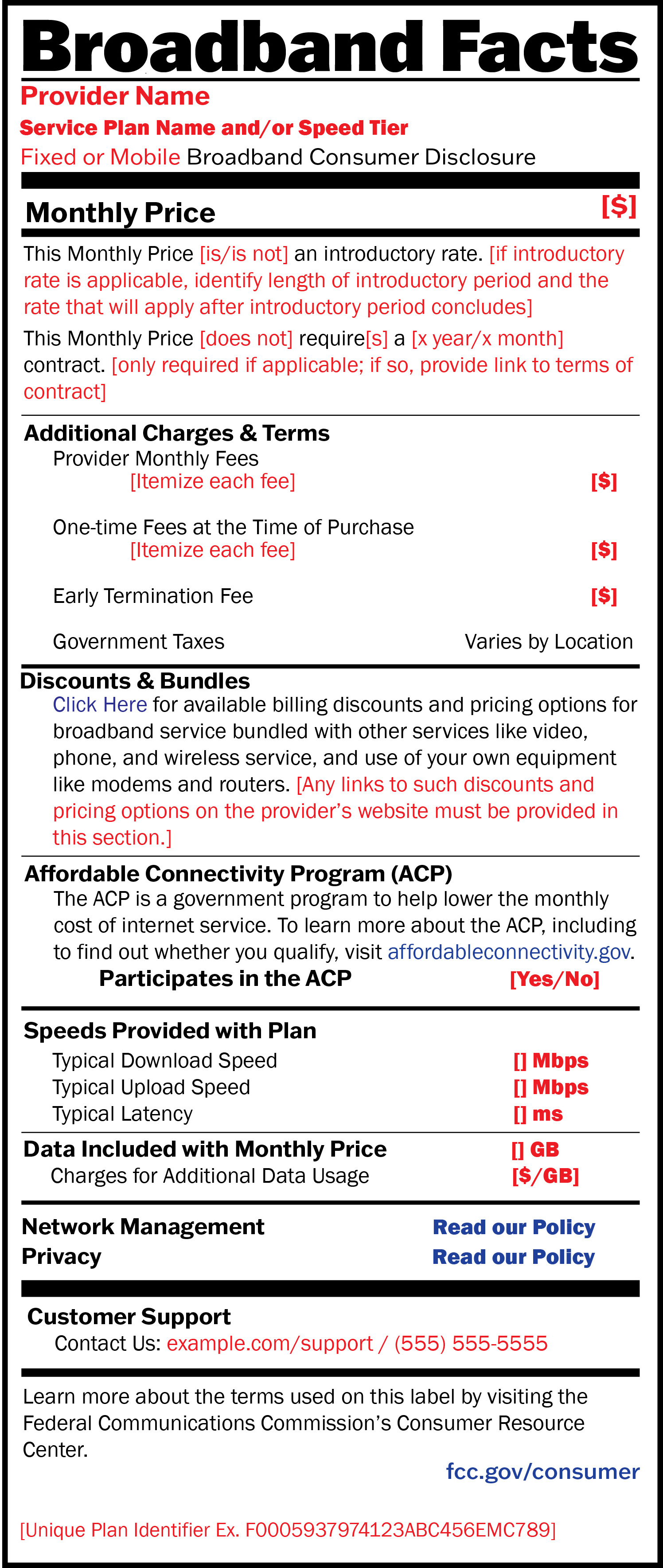Next Century Cities Presses FCC for ‘Average’ Speed on Broadband Label
The group also recommended a more streamlined complaint process for digital discrimination issues.
Ahmad Hathout

WASHINGTON, March 2, 2023 – Advocacy group Next Century Cities pressed Federal Communications Commission officials in a meeting late last month to incorporate the average speeds of internet packages on the new broadband label instead of just “typical” speeds.
“An average speed allows consumers to understand the real speeds they can expect to receive, whereas typical speeds can only provide the potential speed a consumer might receive,” the group said in a Thursday letter summarizing the meeting. “Broadband speed estimates are typically higher than actual speeds delivered.”
The FCC is now in the process of gathering more input as to whether it should include more information on the label that is supposed to resemble nutrition panels on foods. The labels have been ordered by the commission in November after a consultation with the public.
The group also pushed for discounts consumers are eligible for and the state and local taxes that they would have to pay. “These data points enhance a consumer’s ability to understand the charges at the end of the month, which is also essential for the success of the CBNL.”
The point the group is pushing is that more granular data is required to get service to as many people as possible. “Absent granular data, the Commission will continue to have significant blind spots in broadband deployment, the success of its subsidy programs, and key areas that require digital discrimination investigations,” the NCC said in the letter.

Experts, however, have warned about the level of detail and additional information on the labels that may burden providers, including smaller outfits that have fewer resources than larger players.
In addition to the broadband speeds promised by the providers, the new labels must also display typical latency, time-of-purchase fees, data limits, and provider-contact information.
The NCC also recommended the FCC set up a “quasi-formal complaint process” for state and local governments, community anchor institutions like libraries, schools and health care facilities, and other organizations that collect digital discrimination data. This, it said, would allow for a less burdensome way to communicate issues without having to go through the “procedural burden” of a formal complaint.
“It would also promote collaboration between local officials, community leaders, anchor institutions, and the Commission which are all working to help end digital discrimination,” it said.
The commission is currently examining how to define digital discrimination when it comes to infrastructure builds.










Member discussion